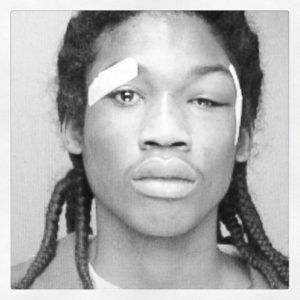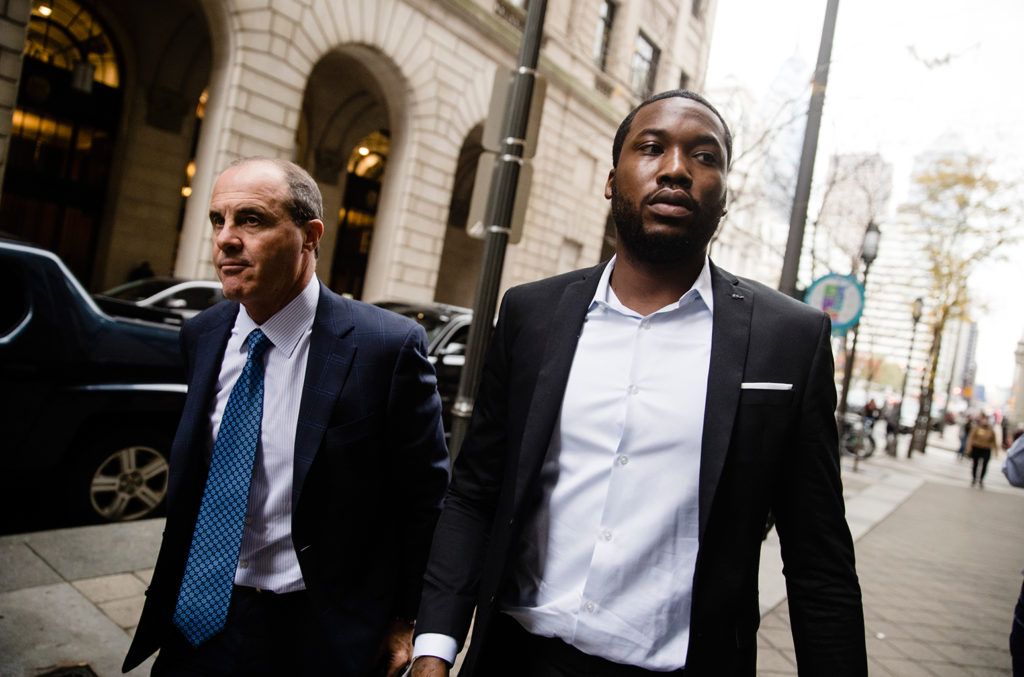As a life long Miami Heat fan, I knew we were in trouble. It’s the 2018 NBA Playoffs and the Heat were playing the Philadelphia 76ers, the hottest team in the NBA. We (as in the Miami Heat because I am a fan and therefore think I am a member of the team) were down three games to one in a best of seven series. One more loss and our season was over. Game 5 was in Philadelphia. Game 6 would be in Miami. I convinced myself that if we win game 5 we would win game 6 in Miami and then anything could happen in Game 7. This is how sports fans think. It’s not over until it’s over and we go through scenarios that give us hope, no matter how unlikely.
Fast forward to April 24, 2018. It’s the day of Game 5. I’m in my office trying to work while also getting ready for the game. “We just need to win game 5 and play game 6 back home in Miami. We can do this.” I kept saying it to myself over and over again. I had such hope. Hope powered me through the day. I was ready. Our season was on the line, but I was excited and hopeful. That was until I did my routine afternoon twitter “inspection.” In a matter of seconds, all hope went out the window. I went from “we can do this!” to “season over” because of one tweet. The tweet that sent me into Miami Heat despair read:
“#FreeMeek !! Courts release Philadelphia rapper Meek Mill from prison. Reports say he will be courtside for #PHIvsMia game 5”

Just like that I knew the Miami Heat’s season was over. Meek Mill, a Philadelphia based rapper, was being released from jail after a long and public ordeal where it appeared he was unjustly sent to prison by an overzealous judge who had also placed him on a harsh and ridiculously long probation term. That same Judge, the Honorable Genece E. Brinkley had since found that Meek Mill violated his probation and sent him back to prison. The case made national news and was heavily discussed on all social media outlets. Celebrities such as Rick Ross and Jay-Z commented on the harsh treatment of their fellow rapper. New England Patriot owner, Robert Kraft visited Meek Mill in jail. The #FreeMeek movement was on full display. Meek Mill became a household name and became the face of criminal justice reform.
Everyone I spoke to in regard Meek Mill seemed to know about the #FreeMeek movement but very few actually knew why he was sentenced to jail and probation, how he violated his probation, what led to his recent incarceration, and the real reason why he was being released from prison. The more I spoke to people the more I realized people didn’t really know what took place and therefore it was difficult to discuss the actual issues surrounding the case. Most people wanted to talk about probation and how it disproportionally affects minorities (which it does). However, the more I researched #FreeMeek the more I realized this case was less about probation and more about a glaring injustice based on the unreliable word of a police officer who arrested Meek Mill back in 2007 which lead to this entire saga. I quickly realized Meek Mill wasn’t released because his probation was unfair. Meek Mill was released because he should have never been convicted and therefore should have never been put on probation in the first place!
Before we discuss Meek Mill’s case and the reason he was released it is important to first discuss what actually transpired in chronological order.
Timeline of Events
2007- The Case That Started It All
At the age of 18, Meek Mill was arrested for possession of a firearm, drug dealing and for assaulting a police officer. The arrest and conviction were in part, based on the testimony of arresting officer Reginald Graham. Graham stated that he witnessed Meek Mill “selling drugs” and when police attempted to arrest him, Graham stated Meek Mill pointed a gun at the officers. Meek Mill admitted to having the gun but denied that he was selling drugs and that he pointed the gun at police. Meek Mill was convicted of drug possession, a firearms violation and simple assault. He was later quoted saying that the police “beat the shit out of me.” Meek was then sentenced to eight (8) months in jail and received five (5) years of probation.

2012- Arrested on Halloween for Failing to Allow Police to Search His Car
On October 31, 2012 (Halloween Night), Meek Mill was pulled over because police stated his car smelled like marijuana. Meek Mill refused to allow police to search his car and was subsequently arrested.
2014- Probation Violations
During the summer of 2014, Judge Brinkley violated Meek Mill’s probation and sentenced him to 3-6 months in jail. Meek Mill violated his probation because he scheduled rap concerts outside of Philadelphia without the Judge’s permission. It is odd that a Judge would violate a defendant for trying to make a living and find employment, i.e. scheduling concerts, because finding gainful employment tends to be a pillar of probation. Usually, one of the prongs of probation is to secure or attempt to secure employment to become an upstanding citizen. Judge Brinkley actually sent Meek Mill back to jail for doing this very thing. The only reason Meek Mill had to get approval from the Judge in the first place was due to an overbearing and uncommon order requesting that the Judge have final say over his performances. Meek Mill was released from jail December 2014.
2016- Probation Violation
Once again, Meek Mill violated his probation for traveling without obtaining Judge Brinkley’s approval. She sentenced him to 90 days house arrest and he was required to wear a GPS monitor on his ankle.
2017- St. Louis Airport Fight
While walking through the St. Louis Airport, Meek Mill was asked to take a photo with an airport employee and declined. A fight broke out and Meek Mill was arrested for misdemeanor assault. The case was subsequently dropped. However, at the time of his arrest, Meek Mill was still on probation. Although the case was dropped, the mere arrest and facts surrounding it opened him up to a possible probation violation.
Meek Mill “Arrested” for Driving Recklessly
Meek Mill was arrested for driving his motorcycle recklessly after police saw a video of him on Instagram. The video shows Meek Mill “popping a wheely” for about 10 seconds. There didn’t seem to be anyone around him at the time other than the police who witnessed the act but didn’t arrest him or cite him for a traffic violation. It wasn’t until officials saw the video online that they arrested the Philadelphia rapper for reckless endangerment and reckless driving. Meek Mill accepted a deal with the State which dropped all charges so long as he did not get in trouble or arrested for six (6) months.
November 6, 2017- Meek Goes to Prison
On November 6, 2017, Meek Mill was once again in court. Meek Mill was before Judge Brinkley because she wanted to find him in violation of probation for the airport arrest which was dropped and for which he was no longer being prosecuted for, as well as his traffic infraction in New York. Based on these incidences which were minor infractions and not prosecuted, Judge Brinkley sentenced Meek Mill to 2-4 years in prison. The Judge stated, “I gave you break after break, and you basically just thumbed your nose at this court.” It must be noted that the Prosecutors on the case actually recommended that Meek Mill not receive jail time for what transpired. The Judge ignored the Prosecutor’s wishes which is uncommon to say the least and sentenced him nonetheless.
THE LIST
In early 2017, a list was created by the Philadelphia District Attorney’s Office to keep tabs on Philadelphia police officers who had a history of “lying, racial bias, and brutality.” The officers who made the list were basically disqualified by the District Attorney’s Office from testifying in court. They were deemed unreliable because these officers were known for “testilying.” Going forward, defense attorneys were to be notified if an officer was on the list. If the lead officer on a case was on the list, the case would most likely result in a dismissal and charges would be dropped. One of the officers on the list was recently retired Reginald Graham. Graham was one of the lead officer’s in Meek Mill’s original case. He testified that Meek Mill was selling drugs and pointed a gun at him, allegations denied by Meek Mill. This information pertaining to Graham was not known to Meek Mill’s attorney’s prior to and during his 2008 trial. Graham’s lies, and misconduct predated and postdated the trial.
Meek Mill Released From Prison
Based on the new information regarding Graham as well as the harsh sentencing by Judge Brinkley, Meek Mill’s attorneys filed a Motion for Post-Conviction Relief. His attorneys claimed that Meek Mill was entitled to a new trial based on his 2007 arrest and was subsequently entitled to his immediate release pending the outcome of the case. The District Attorney’s Office was in favor of Meek Mill’s release while his 2008 conviction was investigated.
On April 24, 2018, the Supreme Court of Pennsylvania Eastern District granted Meek Mill’s Motion due to “credibility issues with a police officer who was a critical witness” at (Meek Mill’s) trial.” The Court ruled that Meek Mill was to be released immediately on the same conditions outlined by probation at the time prior to August 1, 2017. Basically, the Court stated that Meek Mill deserved a new trial for his 2007 arrest because the Reginald Graham was an unreliable liar.
It is important to note that Meek Mill’s legal team also asked that Judge Brinkley be removed from the case. The Court denied this request. The Judge can remove herself if she sees fit. However, if she would like, she can also remain on the case and preside over Meek Mill at the time this article was written.
Judge Brinkley
Now that we have an understanding as to what actually happened, we now need to discuss who did what and who’s to ultimately blame. First, lets discuss the Judge: The Honorable Genece Brinkley.

Judge Brinkley is not a fan of Meek Mill. She is also the public figure who has taken the most heat regarding her rulings and punishment in this matter whether fair or not. What I can say is that the judge’s treatment of Meek Mill is sadly not that uncommon. Once Meek Mill was convicted in 2008 for illegal gun possession, drug dealing, and assault, Judge Brinkley had jurisdiction over Meek Mill’s probation. She was the one who sentenced him to eight (8) months in jail and five (5) years of probation. There are so many conversations we could have regarding probation, its pitfalls and how it disproportionately effects certain individuals as it pertains to race, gender, and class. This article is not the time for that. What is important is an analysis regarding the punishment Meek Mill received for his actual probation violations.
Meek Mill, over the past seven (7) to eight (8) years has been accused of violating his probation five (5) times:
- 2012- refusing to let police search his car;
- 2014- traveling for work without the Judge’s approval;
- 2016- traveling without the Judge’s approval;
- 2017- airport scuffle where charges were dropped; and
- 2017- popping a wheely on Instagram
Although some of these acts are violations, none of them are serious in nature and none should have resulted in jail time. In fact, the prosecution felt the same way and recommended no jail time. However, Meek Mill was on probation, knew the terms of his punishment, and was found in violation. The Judge legally found him in violation of his probation (you do not need to be convicted of a crime to have your probation violated for said act) and sentenced him accordingly. However, it is odd that a judge goes against a prosecutor’s recommendation for no jail time and sentence a defendant to prison.
There is a lot of outcry from various sources calling for Judge Brinkley to step down, not only from this case, but from the bench. I get it. However, based on what we know, it does not seem as though she has done anything illegal. Her punishments are harsh (in reality too harsh) but she has not done anything illegal. In fact, the Order demanding Meek Mill be released immediately also denied Meek Mill’s request to have her removed from the case. Therefore, the higher court found she had done nothing wrong and could remain on the case. The real question becomes: Why was Meek Mill released?
Meek Mill Released
To me, the real issue in this case isn’t Judge Brinkley and her harsh sentencing and treatment. The real issue here is whether Meek Mill’s case from 2007, which lead to jail and probation, should be thrown out and discarded.
If we go back to the timeline, we see that all of this started in 2007 based on the arrest lead by Reginald Graham. Graham states he saw Meek Mill selling drugs. This testimony lead to searching and arresting the rapper. If the cops were lying, and they never saw him selling drugs, then there was no legal duty or authority to stop, search, and arrest him. If they couldn’t search him, then they wouldn’t have found a gun or drugs and there wouldn’t be a case. This case, which is a decade old, comes down to whether the officer, Reginald Graham is telling the truth. Clearly, no one in Philadelphia, especially the prosecutors, think he is capable of doing so.
Prosecutors and police work hand-in-hand. They are an extension of one another (even according to case law). They need each other to carry out justice. The police arrest the bad guys and gather the evidence. The prosecutors take that information and evidence, walk into court and try to make sure the bad guys don’t do it again and make sure they pay for their actions. These roles have been in place for centuries. That is why the 2017 “List” was so important and astonishing.
The “List” basically states that officers who are on it are so bad and untrustworthy that they cannot work together with them. They cannot trust them and therefore anything they say must be treated as a lie. Meek Mill was basically convicted on the words of an officer who the prosecutors say is a liar. If you can’t trust the words of a witness, then the witness is unreliable and therefore so is the evidence. If this list was published in 2007, Meek Mill would never have been prosecuted for this crime and would have never been sent to jail and placed on probation. If he wasn’t placed on probation, there would be no probation violations and he would not have been placed back in jail for minor infractions. The real issue here is Meek Mill’s case should have never been prosecuted and subsequently should have been overturned and dismissed once we learned Officer Graham was unreliable because he is a known liar. PERIOD.
This is not a case of judicial oversight gone wrong (although that happened too). This is a case about what happens to people when police lie and the whole world finds out. We need police. They do so much good and society relies on them. They risk their lives for us on a daily basis. However, with great power comes great responsibility and scrutiny. Unfortunately, throughout America, this happens all too often. What should happen going forward is Meek Mill’s original case from 2007 should be thrown out, dismissed and he should be released from Court supervision. Meek Mill may not have been the model client while on probation but who cares because he never should have been on probation in the first place and it appears the Court agrees.
